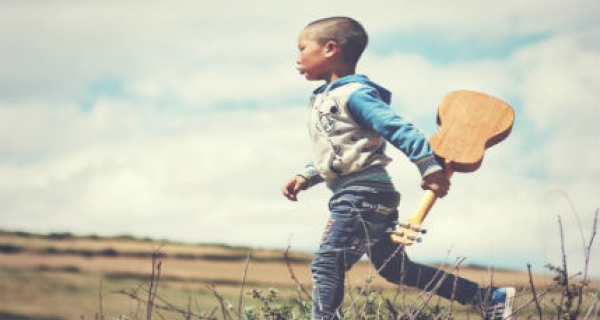We know that exercise is vital for growing bodies, but it’s also crucial for growing brains. According to the experts, kids need plenty of opportunities to run around, even if it means they have less time in structured activities.
The 24 experts were from eight countries and came from different academic disciplines. They applied their minds to the best available research on physical activity during childhood and adolescence and they came up with some remarkable findings. The findings have been published in a consensus statement published in the British Journal of Sports Medicine.
Over the 30 years we have been researching the health and well-being of young people, we have seen the accumulation of pediatric data across physiological, psychological, environmental and social issues. This 21 point consensus statement reflects the importance of enhanced physical activity, not just in schools but sports and recreational clubs, with the family, and even for those children with long-term illness. At all levels of society, we must ensure that enhanced physical activity is put into practice.’ – Professor Craig Williams, Director of the Children’s Health and Exercise Research Centre, Sport and Health Sciences, University of Exeter.
What counts as physical activity?
Physical activity includes anything that gets kids moving. It doesn’t have to be structured sports or team activities. Ant time spent playing, running around in the park, riding a bike or walking the dog will help them flourish.
Why is physical activity so good for growing brains?
In children and adolescents aged 6-18, physical activity nutures them in the following ways:
It builds their cognitive functioning:
Physical activity before, during and after school will boost academic performance.
- A single session of moderate physical activity will immediately boost brain function, cognition and academic performance.
- Brain power and academic performance are boosted when children master fundamental movement skills.
- Time spent in favour of physical activity, even if it means time away from lessons, will not come at the cost of good grades.
It nurtures their engagement, motivation, and psychological well-being:
- Physical activity will boost their self-esteem;
- Nurture relationships with peers, parents and other important adults in their lives such as teachers and coaches.
- An environment that supports their autonomy and is caring and socially supportive will enhance their motivation, their behaviour in relation to physical activity, and their general well-being.
- Regular and organised physical activity training helps to build important life skills (interpersonal, self-regulation) and core values (respect, social responsibility).
It supports a culture of inclusiveness.
- Activities that are sensitive to culture and context create opportunities for social inclusion. This is important for all children, including those from different backgrounds, ethnicities, sexual orientation and physical capabilities.
What can we learn?
The researchers found that participation in physical activity is influenced by gender, ethnicity, sexual orientation, skill level, disabilities and socioeconomic status.
The benefits of physical activity for growing bodies and growing brains is profound. There is an obvious need to make sure that all kids and teens have access, regardless of their demographics, skill level, and social, cultural and physical qualities. The researchers suggest that the way to make this happen is to provide environments that make this easy for all kids. This would include bike lanes, parks and playgrounds which have all been shown to nurture participation in sports and physical activity for all kids and teens.
Kids and teens have so many wonderful opportunities open to them. The temptation is to provide them with exposure to as many of these experiences as possible. This a great thing, but it is important that any structured non-physical activities don’t interfere with their need for physical activity. Their brains strengthen and grow on physical activity. Give them space and opportunity to move, and watch them thrive.
Karen Young







